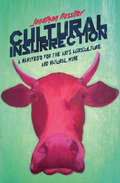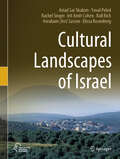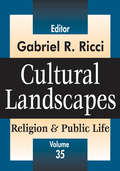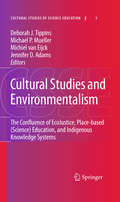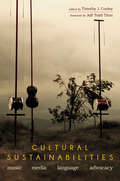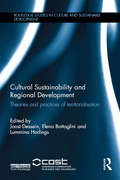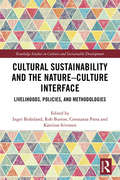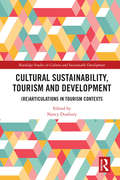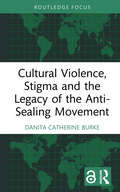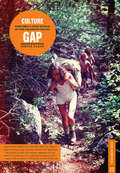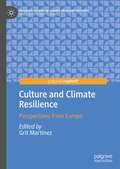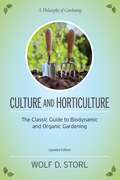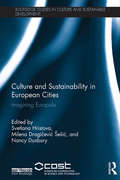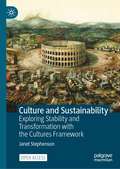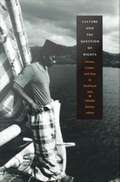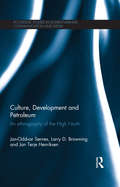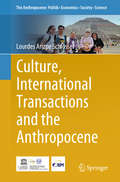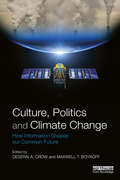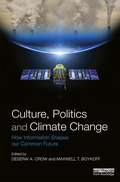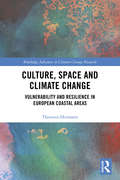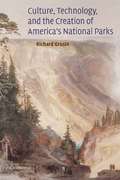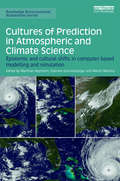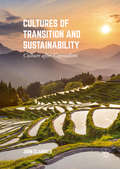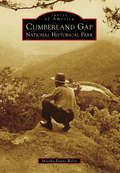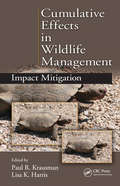- Table View
- List View
Cultural Insurrection: A Manifesto for Arts, Agriculture, and Natural Wine
by Jonathan NossiterFrom the director of Mondovino, a lively discussion of the expanding world of natural wine that considers the movement as a potential remedy for our current cultural crisis. What if, ten years from now, an artist--a filmmaker, for example--will have become as marginal and anachronistic as a blacksmith? What if the actors in the cultural world are on the brink of extinction, not about to disappear like prehistoric animals, but worse--submitting to the status quo? Absorbed by a marketplace that increasingly devalues true artistic work?In Cultural Insurrection, award-winning filmmaker and sommelier Jonathan Nossiter considers these questions and offers a solution inspired by the rebellious, innovative figures transforming the way we produce and consume wine. This new generation of artisans, working closely with the earth to create exceptional natural wines, has assumed the role of dissenters that artists have abandoned, and we should look to them in order to revitalize contemporary art.
Cultural Landscapes of Israel
by Aviad Sar Shalom Yuval Peled Rachel Singer Irit Amit-Cohen Rafi Rich Avraham (Avi) Sasson Elissa RosenbergThis book introduces an inventory of proposed cultural landscapes in Israel, which have been identified, researched and mapped by the Israel Nature and Parks Authority. The categories as defined by the Operational Guidelines of the World Heritage Convention are used to classify the cultural landscapes and provide a framework to determine their significance on a global, regional and local scale. This volume explains the local planning framework and highlights the present complexities in a local context. A number of innovative case studies on the management of sites illustrate how it is possible to bring a range of stakeholders together with public participation, ensuring that appropriate decisions are made regarding the steps necessary for the future of cultural landscapes in Israel. This book appeals to planners and heritage conservationists equally as to students and post graduates in the fields of landscape planning and architecture, geography, archaeology and many related areas.
Cultural Landscapes: Religion and Public Life (Religion And Public Life Ser.)
by Gabriel R. RicciAdualism between man and nature has been a persistent feature of Western thought and spirituality from ancient times to the present. The opposition of mind and body, consciousness and world has tended to obscure the ways in which humans are ecologically part of interconnected systems, some of which are obvious while others operate in hidden but life-sustaining ways. Cultural Landscapes explores the physical ways in which we are intimately linked to the land and the intellectual and aesthetic connections human consciousness has with the landscape. Following the editor's introductory essay, the lead article by Jame Schaeffer, "Quest for the Common Good: A Collaborative Public Theology for a Life-Sustaining Climate," assesses the lightning rod issue of global warming in the context of a public and ecumenical theology and sets the tone for this normative assessment of our relationship with nature. Likewise, David Kenley's essay, "Three Gorges be Dammed: The Philosophical Roots of Environmentalism in China," reveals the traditional philosophical and cultural values that can sustain a vital environmentalism in the East. David Brown's historical insights into the use of the American landscape to define historical writing complement Patricia Likos-Ricci's historical treatment of nineteenth-century landscape painting and the first call to preserve wilderness in the United States. Matt Willen, "An Feochszn," and David Martinez, "What Worlds are Made of: The Lakota Sense of Place," both demonstrate how space is transformed into place through song and mythic tales. On a metaphysical note, Andreas Philippopoulos-Mihalopolos' essay "On the Line of the Horizon, Anxiety in de Chirico's Metaphysical Spaces," provides the reader with psychological and existential insights into the disorienting paintings of de Chirico, and Gabriel Ricci's concluding essay tours the landscape that underpins Heidegger's ontological speculations. The contributions to this volume are posited on the belief that culture, society, and human history are ultimately rooted in the natural world. This integration may explain why humanity has always looked to nature for moral and ethical guidelines. Gabriel R. Ricci is associate professor of humanities and the chair of the Department of History at Elizabethtown College in Pennsylvania. He is the author of Time Consciousness: The Philosophical Uses of History, published by Transaction.
Cultural Studies and Environmentalism: The Confluence of EcoJustice, Place-based (Science) Education, and Indigenous Knowledge Systems (Cultural Studies of Science Education #3)
by Michiel Van Eijck Jennifer D Adams Michael P. Mueller Deborah J. TippinsAs the first book to explore the confluence of three emerging yet critical fields of study, this work sets an exacting standard. The editors' aim was to produce the most authoritative guide for ecojustice, place-based education, and indigenous knowledge in education. Aimed at a wide audience that includes, but is not restricted to, science educators and policymakers, Cultural Studies and Environmentalism starts from the premise that schooling is a small part of the larger educational domain in which we live and learn. Informed by this overarching notion, the book opens up ways in which home-grown talents, narratives, and knowledge can be developed, and eco-region awareness and global relationships can be facilitated. Incorporating a diversity of perspectives that include photography, poetry and visual art, the work provides a nuanced lens for evaluating educational problems and community conditions while protecting and conserving the most threatened and vulnerable narratives. Editors and contributors share the view that the impending loss of these narratives should be discussed much more widely than is currently the case, and that both teachers and children can take on some of the responsibility for their preservation. The relevance of ecojustice to this process is clear. Ecojustice philosophy is a way of learning about how we frame, or perceive, the world around us--and why that matters. Although it is not synonymous with social or environmental justice, the priorities of ecojustice span the globe in the same way. It incorporates a deep recognition of the appropriateness and significance of learning from place-based experiences and indigenous knowledge systems rather than depending on some urgent "ecological crises" to advocate for school and societal change. With a multiplicity of diverse voices coming together to explore its key themes, this book is an important starting point for educators in many arenas. It brings into better focus a vital role for the Earth's ecosystems in the context of ecosociocultural theory and participatory democracy alike. "Encompassing theoretical, empirical, and experiential standpoints concerning place-based knowledge systems, this unique book argues for a transformation of (science) education's intellectual tradition of thinking that emphasizes individual cognition. In its place, the book offers a wisdom tradition of thinking, living, and being that emphasizes community survival in harmony within itself and with Mother Earth." Glen Aikenhead
Cultural Sustainabilities: Music, Media, Language, Advocacy
by Timothy J CooleyEnvironmental sustainability and human cultural sustainability are inextricably linked. Reversing damaging human impact on the global environment is ultimately a cultural question, and as with politics, the answers are often profoundly local. Cultural Sustainabilities presents twenty-three essays by musicologists and ethnomusicologists, anthropologists, folklorists, ethnographers, documentary filmmakers, musicians, artists, and activists, each asking a particular question or presenting a specific local case study about cultural and environmental sustainability. Contributing to the environmental humanities, the authors embrace and even celebrate human engagement with ecosystems, though with a profound sense of collective responsibility created by the emergence of the Anthropocene. Contributors: Aaron S. Allen, Michael B. Bakan, Robert Baron, Daniel Cavicchi, Timothy J. Cooley, Mark F. DeWitt, Barry Dornfeld, Thomas Faux, Burt Feintuch, Nancy Guy, Mary Hufford, Susan Hurley-Glowa, Patrick Hutchinson, Michelle Kisliuk, Pauleena M. MacDougall, Margarita Mazo, Dotan Nitzberg, Jennifer C. Post, Tom Rankin, Roshan Samtani, Jeffrey A. Summit, Jeff Todd Titon, Joshua Tucker, Rory Turner, Denise Von Glahn, and Thomas Walker
Cultural Sustainability and Regional Development: Theories and practices of territorialisation (Routledge Studies in Culture and Sustainable Development)
by Joost Dessein Elena Battaglini Lummina HorlingsMeeting the aims of sustainability is becoming increasingly difficult; at the same time, the call for culture is becoming more powerful. This book explores the relationships between culture, sustainability and regional change through the concept of ‘territorialisation’. This new concept describes the dynamics and processes in the context of regional development, driven by collective human agency that stretches beyond localities and marked-off regional boundaries. This book launches the concept of ‘territorialisation’ by exploring how the natural environment and culture are constitutive of each other. This concept allows us to study the characterisation of the natural assets of a place, the means by which the natural environment and culture interact, and how communities assign meaning to local assets, add functions and ascribe rules of how to use space. By highlighting the time-space dimension in the use and consumption of resources, territorialisation helps to frame the concept and grasp the meaning of sustainable regional development. Drawing on an international range of case studies, the book addresses both conceptual issues and practical applications of ‘territorialisation’ in a range of contexts, forms, and scales. The book will be of great interest to researchers and postgraduates in sustainable development, environmental studies, and regional development and planning.
Cultural Sustainability and the Nature-Culture Interface: Livelihoods, Policies, and Methodologies (Routledge Studies in Culture and Sustainable Development)
by Rob Burton Inger Birkeland Constanza Parra Katriina SiivonenAs contemporary socio-ecological challenges such as climate change and biodiversity preservation have become more important, the three pillars concept has increasingly been used in planning and policy circles as a framework for analysis and action. However, the issue of how culture influences sustainability is still an underexplored theme. Understanding how culture can act as a resource to promote sustainability, rather than a barrier, is the key to the development of cultural sustainability. This book explores the interfaces between nature and culture through the perspective of cultural sustainability. A cultural perspective on environmental sustainability enables a renewal of sustainability discourse and practices across rural and urban landscapes, natural and cultural systems, stressing heterogeneity and complexity. The book focuses on the nature-culture interface conceptualised as a place where experiences, practices, policies, ideas and knowledge meet, are negotiated, discussed and resolved. Rather than looking for lost unities, or an imaginary view of harmonious relationships between humans and nature based in the past, it explores cases of interfaces that are context-sensitive and which consciously convey the problems of scale and time. While calling attention to a cultural or ‘culturalised’ view of the sustainability debate, this book questions the radical nature-culture dualism dominating positive modern thinking as well as its underlying view of nature as pre-given and independent from human life.
Cultural Sustainability, Tourism and Development: (Re)articulations in Tourism Contexts (Routledge Studies in Culture and Sustainable Development)
by Nancy DuxburyCultural Sustainability, Tourism and Development considers how tourism provides a lens to examine issues of cultural sustainability and change. It discusses how cultural and natural assets, artistic interventions, place identity, policy strategies, and community well-being are intertwined in (re)articulations of place and local dynamics that occur in tourist locations. With a primary focus on culture in sustainable development, the book clarifies connections between culture as a core dimension of local sustainability and cultural dimensions of sustainable tourism. It highlights the roles and place of cultural expression, artistic activity, and heritage resources in local or regional sustainable development contexts. Chapters critically examine the dimensions of tourism-invoked dynamics of change and the cultural impacts of tourism-related activities. The book concludes with proposals for new culture-informed and creativity-based approaches, mediations, and relations to encourage a better balance between visitors and residents’ quality of life and the broader sustainability of the area. Interdisciplinary and international in scope, contributions reflect on communities and rural areas located in Brazil, Canada, Croatia, India, Italy, Japan, the Netherlands, Poland, Portugal, and the United States. This book will be of great interest to students and scholars of cultural development and policy, heritage studies, cultural tourism and sustainable tourism, cultural geography, and regional development.
Cultural Violence, Stigma and the Legacy of the Anti-Sealing Movement
by Danita Catherine BurkeThis book injects nuance into the debate about the moral legitimacy of environmental and animal activism and explores how activism can lead to stigma and destruction of minority group identities, cultural practices and community structures. It takes readers back to ground zero of the anti-sealing movement – Newfoundland and Labrador. This book sheds light on the human costs of activists and the repercussions for vulnerable people when activism normalizes forms of violence as acceptable to achieve their desired outcomes. Inspired by Greenpeace Canada’s apology to Canadian Inuit, Indigenous and coastal peoples, this book brings into focus the local peoples who were targeted by activists and media outlets and left behind once the cultural and economic structures of the sealing industry and sealing practices were severely damaged by activist stigmatization and the global outcry against rural and coastal peoples and their practices. Drawing upon literature on cultural violence and archival research, this book will be of interest to scholars and researchers of international relations, development studies, public policy, sustainability studies and Indigenous studies.
Culture Gap: Towards a New World in the Yalakom Valley (Transmontanus #22)
by Judith PlantThis fascinating memoir recounts two years of adventure, hardship, and life lessons as a woman moves her family to the Camelsfoot Commune in BC, Canada.The time is the early 1980s. Judith Plant and her new partner, Kip, are ready for a change. Inspired by Fred Brown, their professor at Simon Fraser University, they join a commune in a remote valley near the Yalakom River, deep in Coast Mountains of British Columbia, Canada.Culture Gap tells the story of Judith and Kip’s two-year sojourn. The challenges and privations, the joys and adventures of rural communal living, form the backdrop to a moving human drama. Judith’s son Willie takes to the new life, but Willie’s sisters feel the strong pull of the life they left behind. Meanwhile Fred, the inspiration for the commune, is dying of cancer.An absorbing account of a lifestyle emblematic of a time, Culture Gap also shows a young mother's struggle to reconcile her ideals and her responsibility to those closest to her.
Culture and Climate Resilience: Perspectives from Europe (Palgrave Studies in Climate Resilient Societies)
by Grit MartinezThis book addresses the importance of cultural values, local knowledge and identity in building community resilience in place based contexts. There is a growing impetus among policy makers and practitioners to support and empower capacities of communities under changing climatic conditions. Despite this there is little systematic understanding of why approaches work at local levels or not and what makes some communities resilient and others less so. Europe is typically thought to be well equipped for coping with the effects of a changing climate - because of its moderate climate, its manifold urban-industrialized regions, it’s typically highly skilled population, its successes in science and technology and its advanced climate change policies. However, there is a growing need to understand the effects culture has on communal resiliency and for decision makers and planners to pay attention to historical and cultural characteristics and the complexity of contextualized local conditions to enable successful and durable implementation of climate change policies, programs and measures. This book will be a valuable resource for researchers, students, practitioners and policy makers interested in facilitating sustainable, resilient communities.
Culture and Horticulture: The Classic Guide to Biodynamic and Organic Gardening
by Wolf D. Storl Larry BergerVarious studies have shown time and again that small organic farms and home gardens are capable of producing more food per acre with less fossil energy than large-scale commercial agricultural installations dependent on machines and toxic chemical fertilizers and pesticides. This classic book by Wolf D. Storl, a respected elder in the practice of permaculture, details how food is grown holistically and beautifully by traditional communities around the world, and shows how to apply their ancient wisdom to our own gardens.With interest in natural, sustainable, organic and local food at an all-time high, people are looking beyond their farmers markets and CSA cooperatives to hyperlocal ways of growing healthy, delicious produce in urban gardens and their own backyards. Culture and Horticulture details time-tested methods that are as effective today as they were hundreds of years ago. On the practical front, the book works as a manual for creating and maintaining a bountiful harvest. It explains how to build the soil to maintain fertility; how to produce compost; how to plant, sow, and tend the various fruit and vegetable plants; how to rotate crops and practice companion planting; how to set up a favorable microclimate; how to deal with so-called weeds and pests; how to harvest at the right time; and finally how to store vegetables and herbs. Special emphasis is given to the art and science of composting, the compost being the "heart" of any self-sufficient garden and a model for the cycle of life, death, and rebirth.At the same time the reader is introduced to the wider aspects of horticulture, to its historical, philosophical, and cosmological contexts and social relevance. Gardening is a cultural activity, shaped by peoples' thoughts, wishes, and needs as well as by their cultural traditions. The author, an anthropologist by profession who has investigated the gardening practices of indigenous people throughout the world and worked for many years on biodynamic farms and in his own food garden, will introduce the reader to Rudolf Steiner's vision of the garden as an organic unit, embedded in the context of terrestrial and cosmic forces. Storl explains the importance of cosmic rhythms (solar, lunar, and planetary), the role of biodynamic herbal preparations as "medicines" for the garden organism, and the so-called "etheric" and "astral" forces. The book presents a vision of the garden as seen through the eyes of "Goethean science," a magical place where alchemical transformations of material substances take place.
Culture and Sustainability in European Cities: Imagining Europolis (Routledge Studies in Culture and Sustainable Development)
by Svetlana Hristova Nancy Duxbury Milena Dragićević ŠešićEuropean cities are contributing to the development of a more sustainable urban system that is capable of coping with economic crises, ecological challenges and social disparities in different nation-states and regions throughout Europe. This book reveals in a pluralistic way how European cities are generating new approaches to their sustainable development, and the special contribution of culture to these processes. It addresses both a deficit of attention to small and medium-sized cities in the framework of European sustainable development, and an underestimation of the role of culture, artistic expression and creativity for integrated development of the city as a prerequisite to urban sustainability. On the basis of a broad collection of case studies throughout Europe, representing a variety of regionally specific cultural models of sustainable development, the book investigates how participative culture, community arts, and more generally, creativity of civic imagination are conducive to the goal of a sustainable future of small and medium-sized cities. This is an essential volume for researchers and postgraduate students in urban studies, cultural studies, cultural geography and urban sociology as well as for policymakers and practitioners wanting to understand the specificity of European cities as hubs of innovation, creativity and artistic industriousness.
Culture and Sustainability: Exploring Stability and Transformation with the Cultures Framework
by Janet StephensonThis Open access book brings a cultural lens, and a distinctive analytical framework, to the problem of transitioning to a sustainable, low-carbon future. The world faces a seemingly impossible hurdle – to radically alter long-established social, economic and technological systems in order to live within the biophysical limits of the globe, while ensuring a just and enduring transition. The overarching premise of this book is that this cannot be achieved without widespread cultural change. ‘We need a change in culture’ is often used rhetorically, but what does this really mean?Stephenson starts by exploring culture’s elusiveness, describing its divergent interpretations before identifying core features of culture that are common across most definitions. These characteristics form the core of the cultures framework, an extensively tested approach to studying the links between culture and sustainability outcomes. The framework makes culture an accessible concept which can be analytically applied to almost any sustainability problem. Using many examples from around the world, Stephenson illustrates how cultural stability, cultural flexibility and cultural transformation all have a part to play in the sustainability transition. She guides the reader in the use of the cultures framework for policy development and to underpin research undertaken by individuals or by multi-disciplinary teams.Clearly and engagingly written, Culture and Sustainability is essential reading for academics, students, policy makers and indeed anyone interested in a sustainable future.
Culture and the Question of Rights: Forests, Coasts, and Seas in Southeast Asia
by Charles ZernerThis collection of ethnographic and interpretive essays fundamentally alters the debate over indigenous land claims in Southeast Asia and beyond. Based on fieldwork conducted in Malaysia and Indonesia during the 1980s and 1990s, these studies explore new terrain at the intersection of environmental justice, nature conservation, cultural performance, and the politics of making and interpreting claims. Calling for radical redefinitions of development and ownership and for new understandings of the translation of culture and rights in politically dangerous contexts--natural resource frontiers--this volume links social injustice and the degradation of Southeast Asian environments. Charles Zerner and his colleagues show how geographical areas once viewed as wild and undeveloped are actually cultural artifacts shaped by complex interactions with human societies. Drawing on richly varied sources of evidence and interpretation--from trance dances, court proceedings, tree planting patterns, marine and forest rituals, erotic poems, and codifications of customary law, Culture and the Question of Rights reveals the ironies, complexities, and histories of contemporary communities' struggles to retain their gardens, forests, fishing territories, and graveyards. The contributors examine how these cultural activities work to both construct and to lay claim to nature. These essays open up new avenues for negotiating indigenous rights against a background of violence, proliferating markets, and global ideas of biodiversity and threatened habitat. Contributors. Jane Atkinson, Don Brenneis, Stephanie Fried, Nancy Peluso, Marina Roseman, Anna Tsing, Charles Zerner
Culture, Development and Petroleum: An Ethnography of the High North (Routledge Studies in Environmental Communication and Media)
by Jan-Oddvar Sornes Larry Browning Jan Terje HenriksenThe discovery, just forty years ago, of vast oil and gas reserves in the Southwestern part of Norway, and more recently in the Arctic High North region, created an economic titan and posed a vast array of challenges for both the Norwegian government and the residents of this area. How to extract and transport all that oil and gas without despoiling the pristine environment? How to use this wealth in a socially responsible and sustainable way? How to prepare the rural High North citizens—traditionally fishermen and farmers—for a global, high-tech economy? Adopting an original narrative approach to qualitative research, this book tells the stories of 21 individuals either living or having a genuine interest in the High North, from mayors and entrepreneurs to farmers and fishermen. Through these first-hand meetings, it constructs an ethnographic study that reveals how petroleum and development have impacted on the regional economy and culture. This book will be of interest to all stakeholders in the oil and gas industry, and for students and scholars of organization studies, cultural and communication studies, environmental anthropology, natural resource management and sustainable development.
Culture, International Transactions and the Anthropocene: Culture And Heritage In A Cosmopolitan World (The Anthropocene: Politik—Economics—Society—Science #17)
by Lourdes Arizpe SchlosserThis book analyses how global transactions have been progressively conducted and negotiated in the last 25 years. Achieving a new understanding of sustainability transition in the Anthropocene requires a deeper analysis on culture. The development of new positions of international institutions, national governments, scientific organizations, private fora and civil society movements on culture and nature shows how global transactions must take place in a rapidly transforming world. In her book the author provides a multi-situated ethnography of live debates on culture, global environmental change, development and diversity directly recorded by the author as a participating and decision-making anthropologist from 1988 to 2016. She examines the politicization and internationalization of culture by recognizing, negotiating and diversifying views on cultures and re-thinking culture in the Anthropocene. The merging of science and policy in taking up cultural and natural challenges in the Anthropocene is discussed.
Culture, Politics and Climate Change: How Information Shapes our Common Future
by Maxwell T. Boykoff Deserai A. CrowFocusing on cultural values and norms as they are translated into politics and policy outcomes, this book presents a unique contribution in combining research from varied disciplines and from both the developed and developing world. This collection draws from multiple perspectives to present an overview of the knowledge related to our current understanding of climate change politics and culture. It is divided into four sections – Culture and Values, Communication and Media, Politics and Policy, and Future Directions in Climate Politics Scholarship – each followed by a commentary from a key expert in the field. The book includes analysis of the challenges and opportunities for establishing successful communication on climate change among scientists, the media, policy-makers, and activists. With an emphasis on the interrelation between social, cultural, and political aspects of climate change communication, this volume should be of interest to students and scholars of climate change, environment studies, environmental policy, communication, cultural studies, media studies, politics, sociology.
Culture, Politics, and Climate Change: How Information Shapes our Common Future
by Maxwell T. Boykoff Deserai A. CrowFocusing on cultural values and norms as they are translated into politics and policy outcomes, this book presents a unique contribution in combining research from varied disciplines and from both the developed and developing world.<P> This collection draws from multiple perspectives to present an overview of the knowledge related to our current understanding of climate change politics and culture. It is divided into four sections – Culture and Values, Communication and Media, Politics and Policy, and Future Directions in Climate Politics Scholarship – each followed by a commentary from a key expert in the field. The book includes analysis of the challenges and opportunities for establishing successful communication on climate change among scientists, the media, policy-makers, and activists.<P> With an emphasis on the interrelation between social, cultural, and political aspects of climate change communication, this volume should be of interest to students and scholars of climate change, environment studies, environmental policy, communication, cultural studies, media studies, politics, sociology.
Culture, Space and Climate Change: Vulnerability and Resilience in European Coastal Areas (Routledge Advances in Climate Change Research)
by Thorsten HeimannWays of handling climate change vary worldwide. Differences can be observed in the perception of potential threats and opportunities as well as in the appraisal of adequate coping strategies. Collective efforts often fail not because of technical restrictions, but as a result of social and cultural differences between the actors involved. Consequently, there is a need to explore in greater depth those zones of cultural friction which emerge when actors deal with climate change. This book examines how cultural differences in the handling of climate change can be described and explained. The work develops the concept of culture as relational space, elaborates explanatory approaches, and investigates them by surveying more than 800 actors responsible for spatial development of the European coastal regions in the Netherlands, Germany, Denmark, and Poland. In doing so, this book engages with debates on cultural globalisation, in which the attachment of culture to place is increasingly being questioned. Adopting the approach of culture as relational space allows possible cultural formations to be examined across diverse fields of application from the local to the global scale. In addition, the book investigates how far different value orientations, beliefs, and identities can explain diverse perceptions of problems and opportunities right up to preferences for climate-mitigation and adaptation measures. Providing comprehensive insights into the diverse zones of cultural friction which scholars and practitioners face when handling climate change locally and globally, this book will be of great interest to those studying climate change, environmental sociology, and sustainable planning.
Culture, Technology, and the Creation of America's National Parks
by Richard GrusinRichard Grusin's innovative study investigates how the establishment of national parks participated in the production of American national identity after the Civil War. The creation of America's national parks is usually seen as an uncomplicated act of environmental preservation. Grusin argues, instead, that parks must be understood as complex cultural technologies for the reproduction of nature as landscape art. He explores the origins of America's three major parks--Yosemite, Yellowstone, and Grand Canyon--in relation to other forms of landscape representation including photography, mapping, travel writing, and fiction.
Cultures of Prediction in Atmospheric and Climate Science: Epistemic and Cultural Shifts in Computer-based Modelling and Simulation (Routledge Environmental Humanities)
by Matthias Heymann Gabriele Gramelsberger Martin MahonyIn recent decades, science has experienced a revolutionary shift. The development and extensive application of computer modelling and simulation has transformed the knowledge‐making practices of scientific fields as diverse as astro‐physics, genetics, robotics and demography. This epistemic transformation has brought with it a simultaneous heightening of political relevance and a renewal of international policy agendas, raising crucial questions about the nature and application of simulation knowledges throughout public policy. Through a diverse range of case studies, spanning over a century of theoretical and practical developments in the atmospheric and environmental sciences, this book argues that computer modelling and simulation have substantially changed scientific and cultural practices and shaped the emergence of novel ‘cultures of prediction’. Making an innovative, interdisciplinary contribution to understanding the impact of computer modelling on research practice, institutional configurations and broader cultures, this volume will be essential reading for anyone interested in the past, present and future of climate change and the environmental sciences.
Cultures of Transition and Sustainability: Culture after Capitalism
by John ClammerContending that culture lies at the root of our current planetary and civilizational crisis, this book uniquely explores the nature of the specifically cultural dimensions of that crisis and how culture relates to the areas of politics, policy, economics, ecology and the whole discourse of sustainability. It debates how profoundly our world is shaped by capitalist culture, emphasizing the import of political culture and policy, social justice, leadership and community in the shaping of a new cultural sustainability. It also reintroduces questions of religion, art, citizenship and comparative culture into the sustainability debate and suggests ways in which the central issue of consumer culture can be rethought and others in which socially satisfactory transitions to a sustainable future might be achieved. Addressing the specific role of culture in our crisis and of how to build cultural resources for transition, this cutting edge text provides the reader with an introduction to the literature on culture and sustainability, and both practical and theoretical tools for creating and advancing a humane and ecologically responsible future.
Cumberland Gap National Historical Park (Images of America)
by Martha Evans WileyBest known for its pivotal role in opening up the western frontier and its association with explorers and pioneers, the legendary Cumberland Gap has long been celebrated in music and literature. To better preserve that history, Cumberland Gap National Historical Park was authorized in 1940 and now covers more than 24,000 acres in Kentucky, Virginia, and Tennessee. Daniel Boone is remembered here, as well the Native Americans who used the path through the mountains for trade and warfare, the Civil War soldiers who took turns guarding this strategic portal, the geologists and industrialists who saw the potential for development, the businessmen who built one of the nation's first roads for automobile travel, and the displaced residents who gave up their homes for the park. The dream of a few dedicated individuals to one day restore the historic Wilderness Road through the Cumberland Gap came true in 2002 after decades of planning, and visitors can once again walk in the footsteps of the pioneers. Photographs spanning more than a century bring to life the fascinating stories and history of this pass.
Cumulative Effects in Wildlife Management: Impact Mitigation
by Paul R. Krausman Lisa K. HarrisAs humans continue to encroach on wildlands, quality and quantity of wildlife habitat decreases before our eyes. A housing development here, a shopping mall there, a few more trees cut here, another road put in there, each of these diminishes available habitat. Unless the cumulative effects of multiple simultaneous development projects are recogniz
